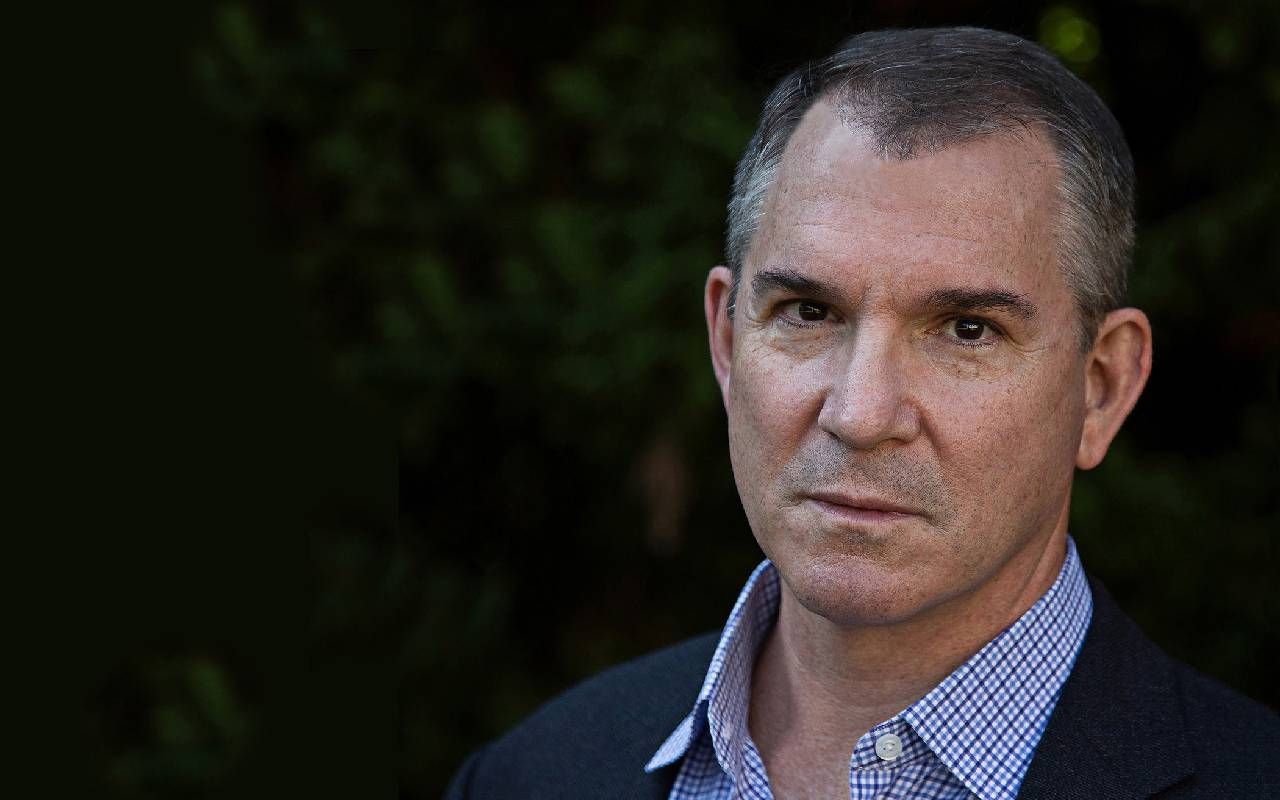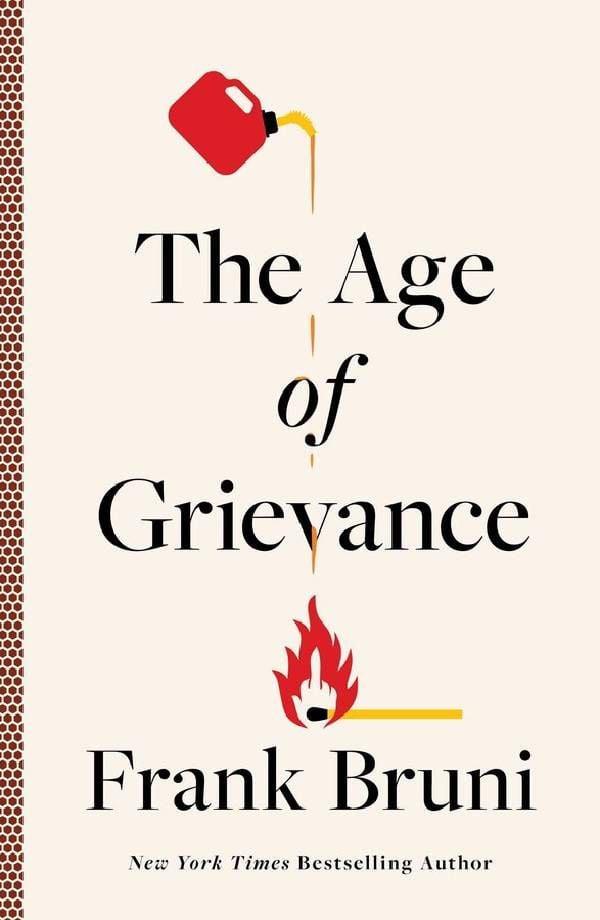Frank Bruni Reflects on the Deepness of Our Political Divisions
In his new book, 'The Age of Grievance,' the New York Times columnist considers the combativeness of our political discourse while offering hopeful solutions
Frank Bruni, the prominent journalist and New York Times columnist, sums up what many of us are feeling about these times we live in: That our country is broken beyond repair and everyone is exhausted by our deep divisions and nasty political discourse.

In his new book, "The Age of Grievance," Bruni delves into what is fueling all this outrage and why Americans — both on the left and the right — are so quick to feel we've been wronged in some way. We blame others (immigrants, minorities, women, etc.) for our victimhood.
A prime example of our tribalism: Brittney Griner, a player on the Phoenix Mercury women's basketball team and an Olympic gold medalist, was sentenced to prison in 2022 after Russian authorities found hash oil in her luggage. Many African Americans thought she was being punished because she is Black, feminists said it was because she is a woman and the LGBTQ community claimed it was because she is a lesbian. One event seen through multiple prisms.
"We must be willing to do certain things to change course."
So how do we find our way back to more compromise and civility? How do we move away from the relentless partisanship and toward the kind of national unity we felt following 9/11? Bruni chronicles not just our simmering grievances, but offers some hopeful solutions.
During his tenure at the New York Times, Bruni has covered a wide range of beats including restaurant critic, White House correspondent, Rome Bureau Chief and opinion columnist. He now lives in North Carolina, is a professor at Duke University and writes a weekly newsletter for the Times.
Here is our interview, edited for length and clarity.
Next Avenue: [In the book], you recalled an earlier time, when Al Gore conceded to George W. Bush following the 2000 election because the impasse 'wasn't good for the country.' Or when John McCain corrected a supporter for accusing Barack Obama of befriending domestic terrorists. 'No, ma'am,' said the Republican candidate. 'He's a decent family man.' Such comity seems unimaginable in the current climate. Do you think this level of grievance is cyclical? And, if you do, what will it take to return to more civility?
Frank Bruni: I worry that it's not a pendulum. We are not on an unstoppable trajectory to permanent grievance, but we must be willing to do certain things to change course. For starters, if we don't reassess the way we approach social media — both as individuals and as a society — if we don't encourage interactions with people from diverse backgrounds and if we don't do a better job of education in general – and civic education in particular – I don't see the pendulum swinging back anytime soon.
Grievances really boiled over in 2020 during the pandemic, pitting the vaxxed vs. the un-vaxxed, the masked vs. the unmasked, red states vs. blue. Why do you think there has been so much hostility directed at Dr. Anthony Fauci – the country's top medical expert on the coronavirus — to the point that he and his family received death threats?
Part of our grievance culture is that individuals become symbols of all these things that people are angry about. That government is too big, there are too many experts, etc. The dynamic of people becoming symbols happens all the time – it just happened in ways that were especially cruel to Fauci.
"Part of our grievance culture is that individuals become symbols of all these things that people are angry about."
Given the fire hose of information coming at us every day, how do we tune out the noise? Many people who see themselves as being wronged are not reading the scholarly journals you mention in your book. So how are we ever going to fix the media landscape when it is easier to turn on Fox or MSNBC? When it is more profitable to keep fanning the flames of grievance?
I think it's pretty hard to change full-grown adults in real time. But I do think we can start by talking to young people about using social media in more high-minded ways. They need to ask themselves if their social media use is aligned with the kind of person they want to be. If we do that, we can create a generation that is less inclined to silo themselves. We can point them toward directions that we aren't pointing them to right now.
I was fascinated by the passage regarding the Yale professor who said that feeling angry lights up the same neural pathways as drugs. It seems to me that most people don't want to be resentful and bitter. Can you shed some more light on this addiction?
I'm not a neuroscientist, but the people who study this say when you are agitated, too revved up by these strong feelings, it's an endorphin rush of its own kind ...The pulse quickens when confronting an enemy — including a political enemy — and you become accustomed to being that way. If you want to get exorcised about something, you can get those rewards on social media. We didn't used to have a way to shout back in real time...now we can take long existing vulnerabilities and reward them at warp speed in a way that just wasn't possible before.
"When covering the news, we can encourage subtleties of thinking – and we should not be doing combativeness and certainty."
Why is this era of grievance more dangerous than earlier ones?
Again, social media is one big component; we have an ability like nothing we've seen before to filter information so it validates our opinions. It's a grievance accelerant ... In the past, we used to have an evening newscast on a few channels. There were gatekeepers, who, for all their flaws, could keep conspiracy theories at bay. We might see the same problems, but today we can see them in completely different ways. People are traveling to sources of information that are completely illegitimate.
When discussing policy issues with your students, you often say 'It's complicated.' But nuance doesn't fit on a bumper sticker or drive TV ratings. So what can journalists do to help readers or viewers see each other in multi-dimensional ways?
Whether we are writing about political actors or voters, we must resist the need to see them as caricatures. When covering the news, we can encourage subtleties of thinking – and we should not be doing combativeness and certainty. Too often, we do the latter.

You are turning 60 in October. If the world is bitter and cranky, those are traits that are often associated with older Americans. So how do you avoid turning into one of those 'Get off my lawn' people who constantly talks about 'the good old days' and complains about everything?
First, I don't accept the proposition that older people are more negative. Second, it's so not in the same category as one who believes the election was stolen. If anything, older people are less judgmental...with age comes a different perspective and an ability to distinguish between the slights you can and should shrug off from more important injustices that require attention.
Your productivity is greater than ever. "The Age of Grievance" came out just two years after your previous book, "The Beauty of Dusk." Then there's the New York Times column, your newsletter and a professorship. What's your ideal work situation?
I used to be a night owl, but sometime in the last decade, I became a morning person. I typically work from 5 a.m. to 8 a.m. Few people are emailing or texting at that time. There's a stillness in those hours, and if you can figure out how to protect the still pockets of time in your life, it's an enormous advantage.
For older Americans, this is a time of change; of retirement, downsizing or the loss of a loved one. You made a big move from New York to North Carolina. Any advice?
My advice is don't be afraid of those transitions and embrace them. We only get one go-around. You can't let timidity or fear push back the hunger for new experiences. These lives are one-time adventures. Standing still for too long is a failure to take advantage of the diversity of experiences. I'm lucky ... many people can't have these new experiences whether because of financial reasons or physical limitations. But if you are blessed enough to have the ability, these experiences keep you sharp and engaged ... and, more often than not, [they are] a reliable route to contentment.
Bonnie Miller Rubin was a reporter for the Chicago Tribune for 25 years, specializing in health and family issues. Her work has appeared in The Washington Post, The Wall Street Journal and other publications. Read More

